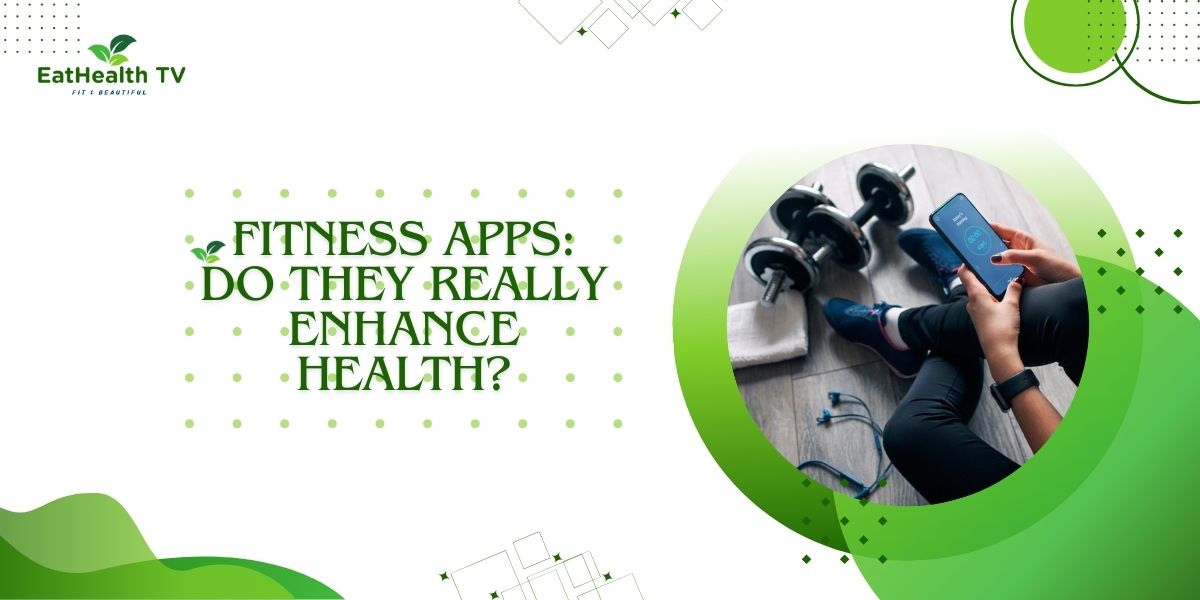Fitness Apps: Do They Really Enhance Health?
Unveiling the Truth: Are Fitness Apps Worth the Hype?

Fitness Apps: Do They Really Enhance Health?
In today’s digital age, technology has transformed nearly every aspect of our lives, including how we approach fitness and health. With the rise of smartphones and fitness apps, individuals now have access to a plethora of tools and resources to help them track their workouts, monitor their progress, and achieve their health goals. But amidst the abundance of fitness apps available, the question remains: do they really enhance health? In this comprehensive guide, we will explore the effectiveness of fitness apps in promoting health and wellness, examining their benefits, limitations, and potential impact on overall well-being.
The Rise of Fitness Apps: A Digital Revolution in Health
- Convenience and Accessibility: One of the primary advantages of fitness apps is their convenience and accessibility. With just a few taps on a smartphone, users can access a wide range of fitness programs, workout routines, and health tracking tools anytime, anywhere. This accessibility makes it easier for individuals to incorporate physical activity into their daily lives, regardless of their schedule or location.
- Personalization and Customization: Many fitness apps offer personalized workout plans and tailored recommendations based on individual goals, fitness levels, and preferences. By providing customized guidance and support, these apps empower users to create a fitness routine that is suited to their unique needs and objectives, increasing the likelihood of long-term adherence and success.
- Motivation and Accountability: Fitness apps often incorporate features such as goal setting, progress tracking, and motivational reminders to help users stay motivated and accountable to their health goals. By gamifying the fitness experience and providing positive reinforcement, these apps can inspire individuals to stay consistent with their workouts and make healthier lifestyle choices.
- Community and Support: Some fitness app offer social networking features that allow users to connect with like-minded individuals, share their progress, and receive support and encouragement from a community of peers. This sense of camaraderie and accountability can enhance motivation and foster a sense of belonging, particularly for individuals who thrive on social interaction and support. Just as we know The Power of Health Apps: Enhancing Patient Engagement
The Effectiveness of Fitness Apps: What Does the Research Say?
- Positive Impact on Physical Activity: Research suggests that fitness apps can have a positive impact on physical activity levels, with users reporting increased motivation, adherence to exercise programs, and improvements in overall fitness and health outcomes. Studies have shown that individuals who use fitness apps tend to engage in more frequent and regular physical activity compared to those who do not use these tools.
- Improved Health Outcomes: Some studies have found evidence to suggest that the use of fitness apps is associated with improvements in various health outcomes, including weight management, cardiovascular fitness, and mental well-being. By providing users with tools and resources to monitor their progress and make informed decisions about their health, fitness apps can contribute to positive lifestyle changes and improved overall health.
- Barriers and Limitations: Despite their potential benefits, fitness app are not without their limitations. Common barriers to their effectiveness include issues with usability, lack of long-term engagement, and reliance on self-reported data, which may be subject to bias and inaccuracies. Additionally, not all individuals may have access to smartphones or the internet, limiting the reach and impact of these digital health tools.
Conclusion
In conclusion, fitness apps have the potential to enhance health and well-being by providing users with convenient access to personalized fitness guidance, motivation, and support. While research suggests that these digital health tools can have a positive impact on physical activity levels and health outcomes, it is important to recognize that they are not a one-size-fits-all solution.
To maximize the effectiveness of fitness apps, it is essential to choose reputable, evidence-based platforms, set realistic goals, and use these tools as part of a comprehensive approach to health and wellness. By harnessing the power of technology and leveraging the benefits of fitness apps, individuals can take proactive steps towards achieving their health and fitness goals, ultimately leading to a happier, healthier life.




